This couple had to fight for their right to rewild
What it's like to battle city council on naturalizing your yard – and to win.

When Craig and Bethany Sinclair set out to naturalize their 1/3-acre lawn in the early months of the pandemic, they weren’t trying to ruffle any feathers – except, perhaps, those of the northern cardinals visiting their DIY bird feeder. They certainly didn’t expect to be the target of unneighbourly complaints, or to find themselves meeting with lawyers to defend their right to grow goldenrod and asters on their property.
But as their naturalization efforts grew, so did tension in their town of Smiths Falls, Ont.
It wasn’t easy for a couple who describe themselves as quiet and rule-following people. They endured 10 visits from bylaw officers over the course of a year, and disheartening letters from community members. They watched town staff scrutinize their lawn during a virtual council meeting and saw pictures of their home splashed across news stories across Canada.

But with the support of local community members and some strongly worded letters from urban ecology experts, the couple were able to fight their town council all the way to the Ontario Superior Court of Justice. And a strong sense of their environmental rights paired with their love of nature emboldened them to keep the fight alive – and to win.
Because of the Sinclairs’ efforts, not only are they allowed to keep their own naturalized lawn growing freely, but more people have started converting their lawns – even public town spaces – into sanctuaries for butterflies and birds.
Here’s how they did it.
Planting the seeds
Craig: Because of my disability, walking is one of the primary activities we do as a family. I don't get to vacation and travel, but we do take walks in forests around this area. As I was walking in town I started to notice, maybe four years ago now, that all of these trees were being cut down. Hundreds of trees went missing. I discovered that it was because of the emerald ash borer.
I made a proposal on what a best-practice bylaw would be for urban forestry for the whole town. I presented this to the town, the mayor, the city planner and two other councillors. I took them on tree tours and explained the problems with our town system. But Covid happened, and I'm immune compromised.

We had three kids on computers and I had no more personal space. My migraines returned and I couldn't work with the town or consult any further. But I thought: I could change my lawn. I started to let my grass grow longer, putting little plants here and there. I stopped using my mower because I heard that it killed things, and started using a push mower. Eventually I started to let the grass grow even taller and used a scythe on it.
Then came the wood chips. I had seen documentaries on forestry and one of the best ways to quickly build a forest in a small space is to lay down six to eight inches of wood chips over top of something that kills the grass underneath before putting native plants in. Work crews were happy to come and dump wood chips on my lawn from trees they were already cutting down, instead of having to drive to the town dump five kilometres out of town.
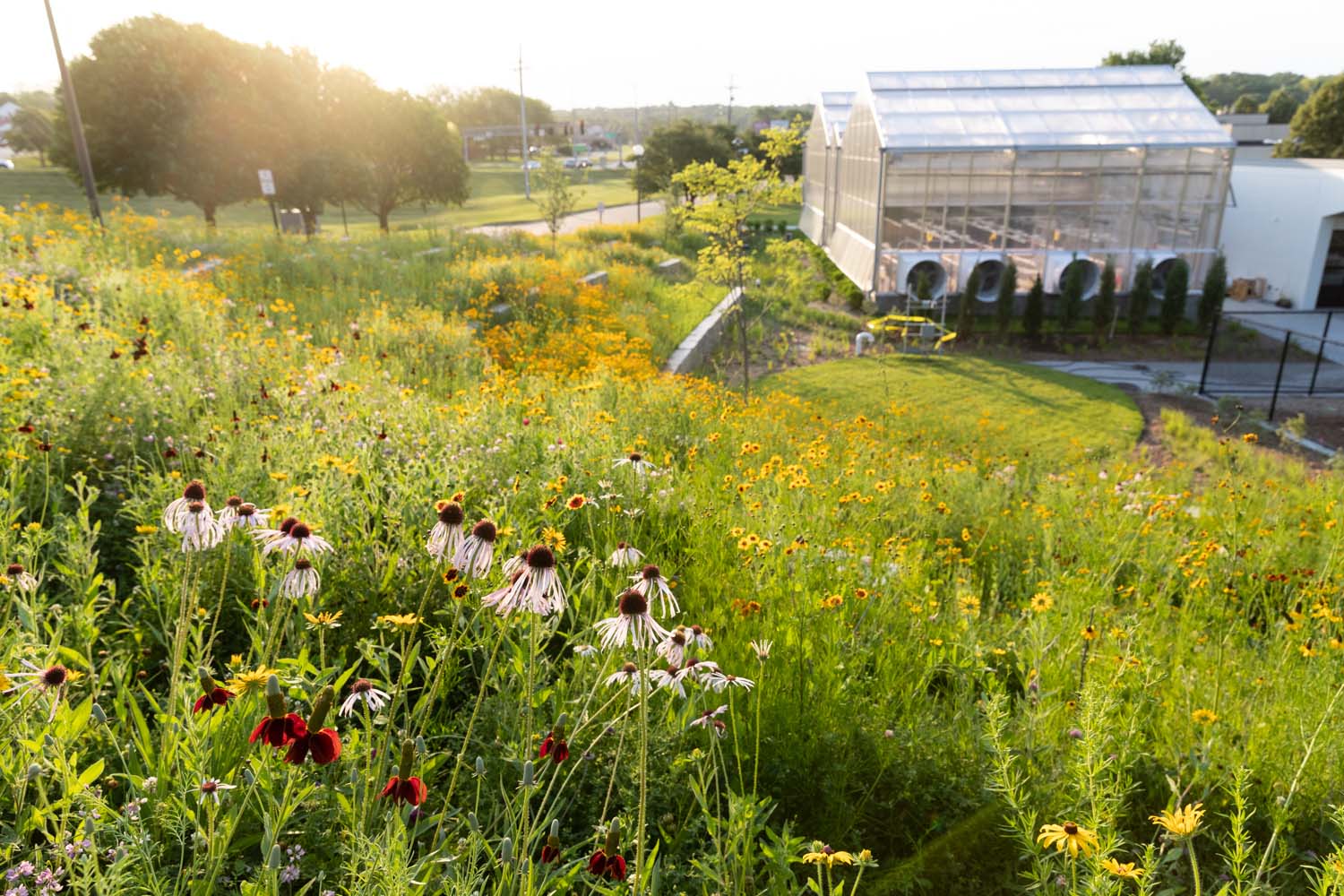
Brushes with bylaw
Craig: We think the first time a complaint was made was when maybe five wood chip loads were dumped on my lawn. A large birch tree had started to die back in the town's property area and they cut it down. I had them put the wood chips, branches and these six-foot, 150- to 300-pound logs on my lawn.
At that same time we started to feed birds. Our town has a law that you can't feed birds on the ground. You have to have an elevated feeder. And we got a complaint. So I made an elevated bird feeder with five logs stacked together.
Beth: Before this complaint about the birds, the officers were just coming out to ask questions. Craig showed them around and explained what he was doing. With bylaw, every time somebody complains, they have to do something about it. Our understanding is, one neighbour didn't like what we were doing and kept complaining. And so bylaw would come and talk to us.
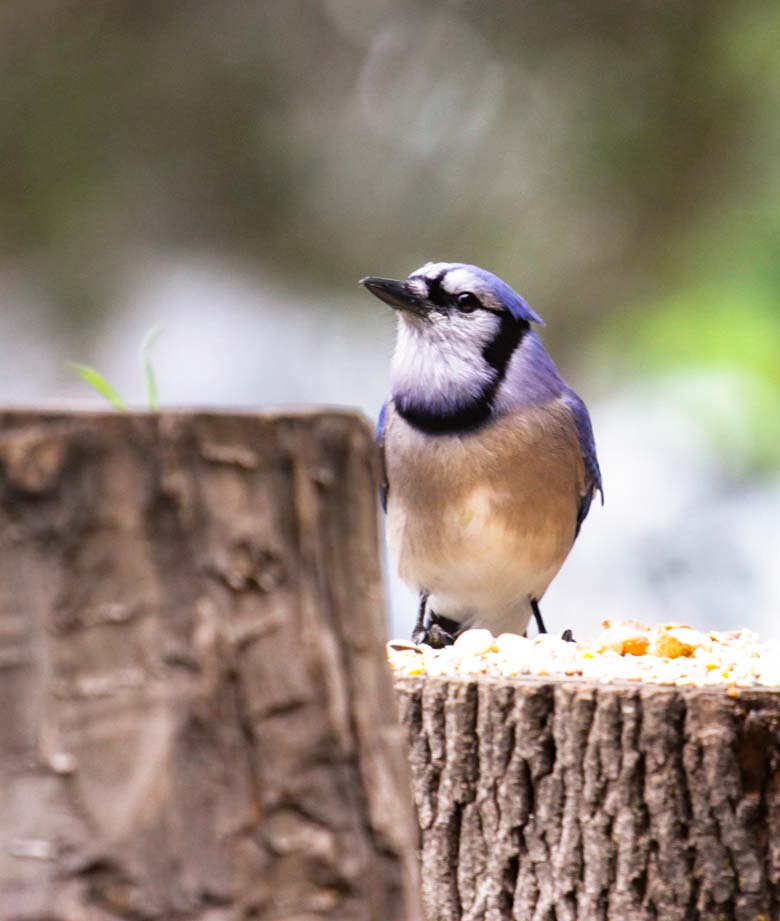


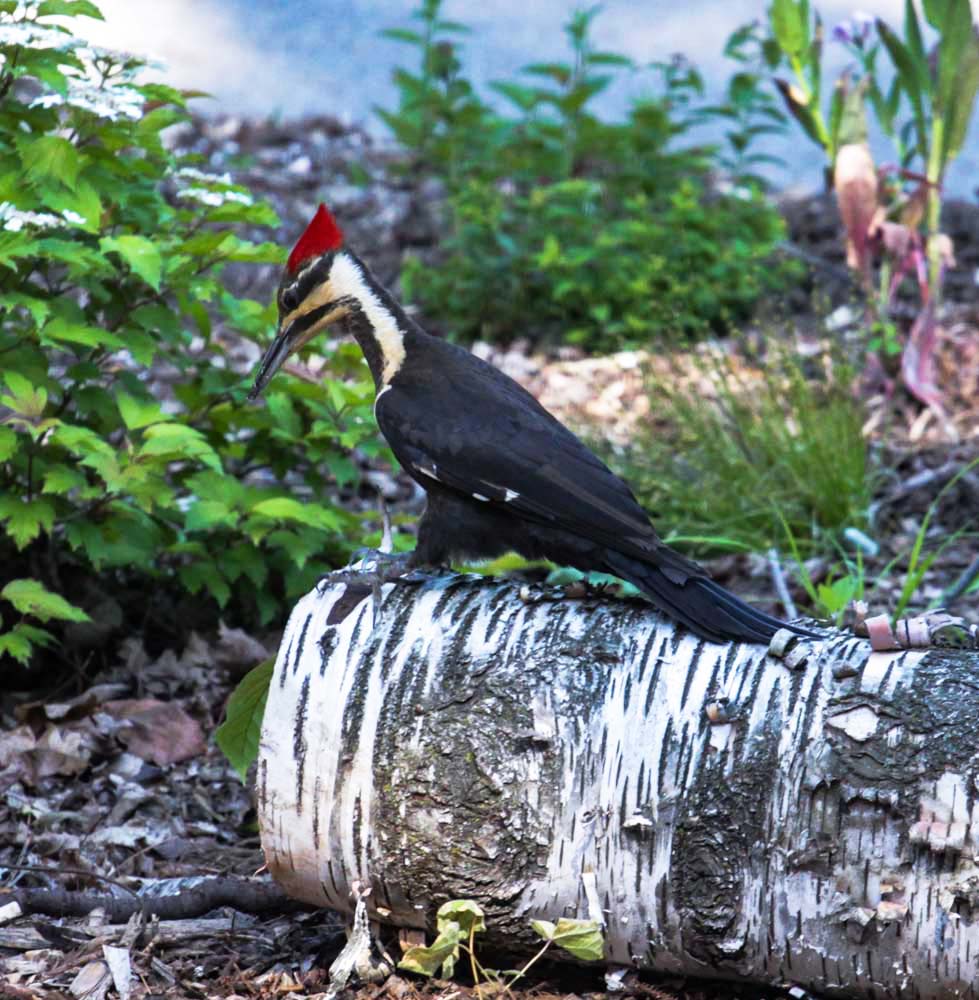
I am a rule follower and I don't like tension or discord. After about nine or 10 visits, I would just start to cry. At that point, bylaw suggested that we write a letter to the town to explain what we were doing and ask them to allow this for us and other people who want to naturalize. This was September 2021.
Craig: By this point, our lawn was completely converted. We had six, eight inches of wood chips all over our whole lawn and probably 120 plants planted at various times.
Beth: We sent a letter to the town just saying, please allow this to happen for people. I didn’t want to make it about us or our property.
But staff determined that our lawn was in violation of the current bylaws and had to be removed. In this really surreal moment, I watched a council meeting online – a meeting we weren’t even invited to – where they discussed our yard and whether they felt we should be allowed to do what we had already done. The vote ended up being three to four, four saying that we couldn't do it. The three who supported us had all visited and taken tours on our lawn the year before.
From council to the Superior Court
Beth: Craig had done research. He knew that our lawn was protected [by the Canadian Charter of Rights and Freedoms] as an expression of our environmental values. They were telling us we had to remove hundreds of plants three metres into our property all the way around, because we're on a corner. It was almost insurmountable to remove all of that, and it would have been so costly.
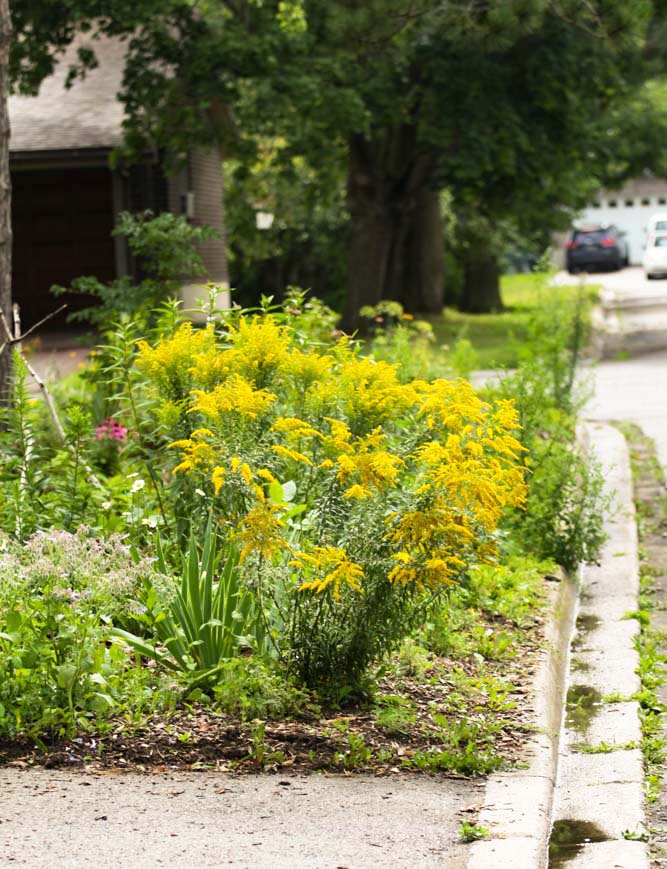
Along the way, whenever bylaw officers came, we actually tried to comply with their suggestions, but this was too much. I had reached out to Lorraine Johnson, a master gardener in Toronto. She connected me with David Donnelly, a lawyer in Toronto, and [ecological planning expert] Nina-Marie Lister. [Lister] had been through this herself and was incredibly supportive. After this October council meeting, we were in regular contact with them about how we should go about changing the town's bylaws and how to ensure that we did everything by the book.
Lorraine Johnson had been part of other Ontario Superior Court cases involving naturalized gardens. She watched the council meeting and was dumbfounded. She knew this issue had already been resolved. She wrote the town a letter saying, basically, “You can't do what you're doing. Here's my expertise. The Sinclairs are within their rights to naturalize.”
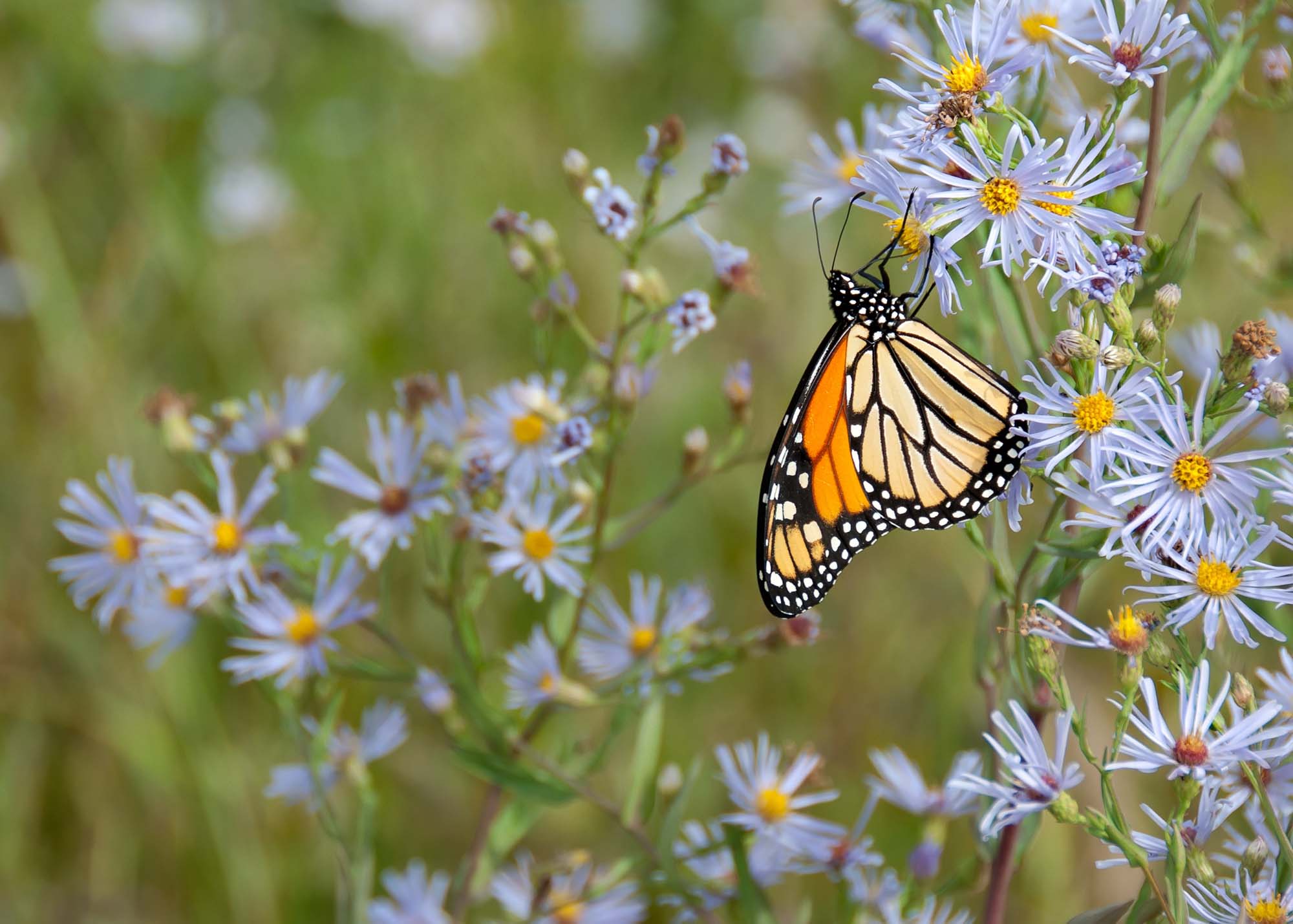
Craig: The town gives exemptions for some of the setback rules and the height limits, but mostly for traditional European-style garden plants. We planted things that are often called weeds, but they’re goldenrod, coneflowers and other native plants. And so our forest system was being cited, whereas traditional European-style gardens weren’t, even though they would also be in violation.
Beth: Right before Halloween, two bylaw officers showed up at our house and posted a notice that felt like the scarlet letter on my front door. We had an order to comply and 10 days to get it done. I just bawled. I was devastated. Our next step was to file an appeal. And so we filed the appeal, which then became a Property Standards Committee matter.
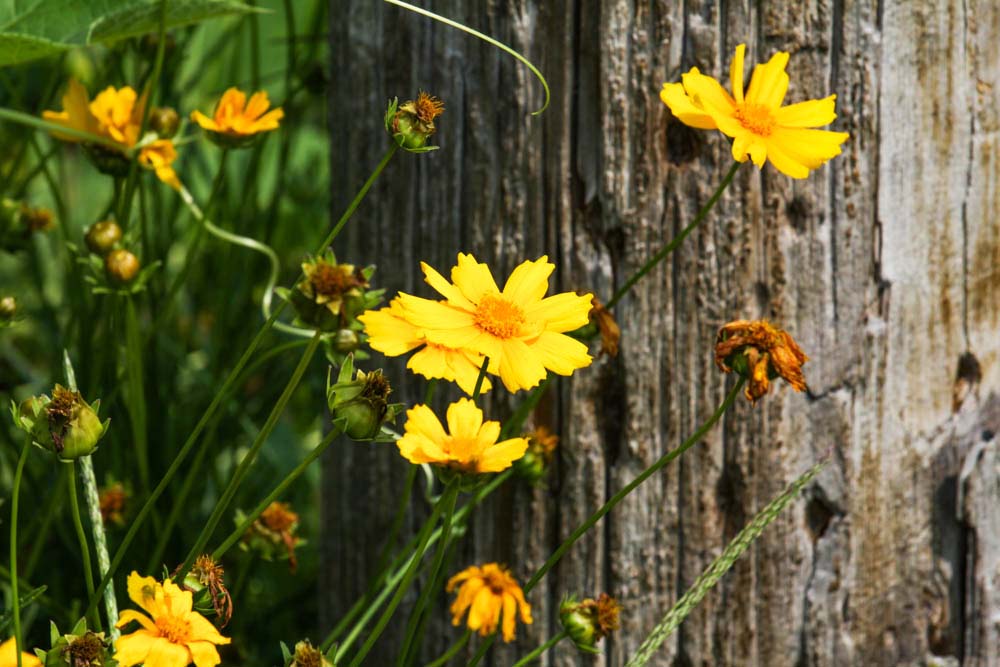
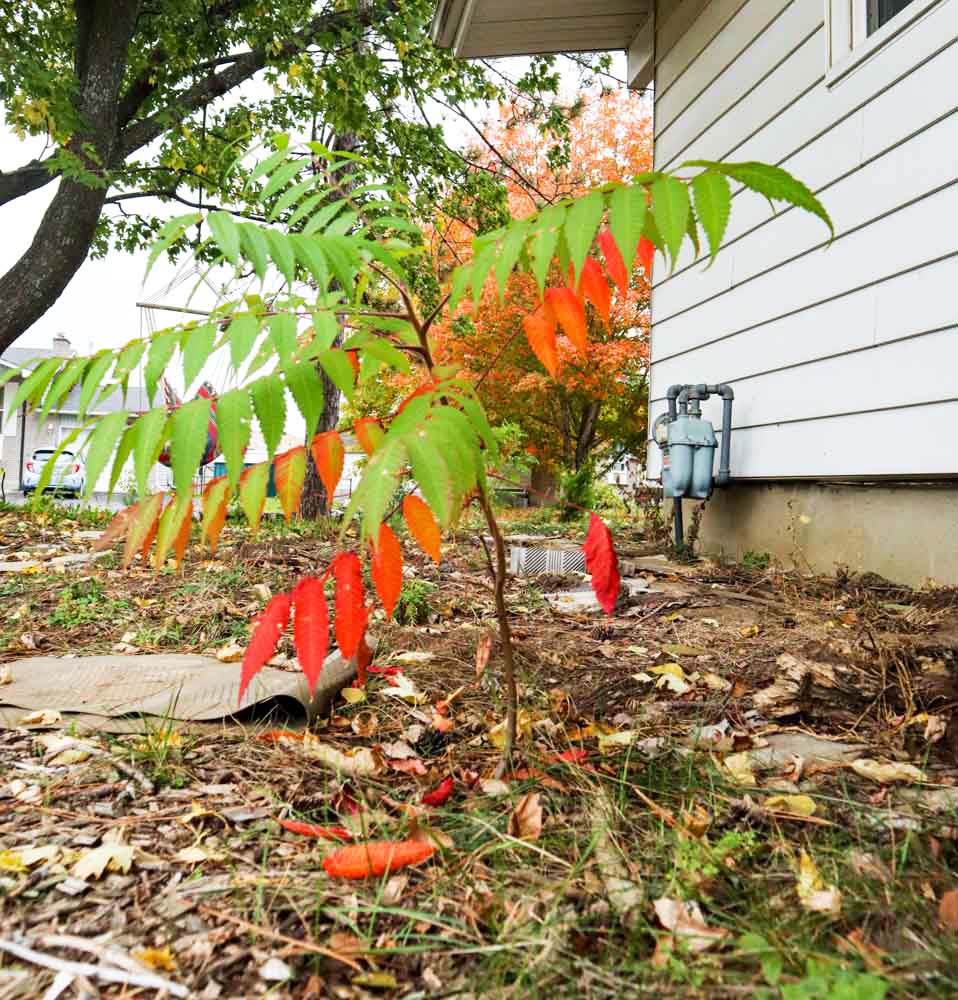


Craig: The Property Standards Committee decides on bylaw issues in our town's constitution. It hadn't met in 10 years, because nobody had appealed a bylaw about property standards for that long. They had to reconvene this group of citizens to decide on the validity of the town’s stance and our counter arguments.
Beth: We did everything we could to prevent the town from spending resources on a futile attempt to stop us. We cc’d experts in our emails when I was corresponding with the town. David Donnelly wrote at least one letter, and lots of neighbours and citizens wrote letters in support. Nina-Marie Lister also wrote to the town to explain why they were in violation of our constitutional rights based on previous court rulings in Ontario.
On January 26, there were four issues on the table. The committee said three of them we had to comply with, one we didn't. We could leave our compost bin the way it was. We would have to comply with the others or appeal their decision to the Superior Court.
Craig: So then the Ontario Superior Court. Twenty things happened, but in the end, the town rescinded the order.
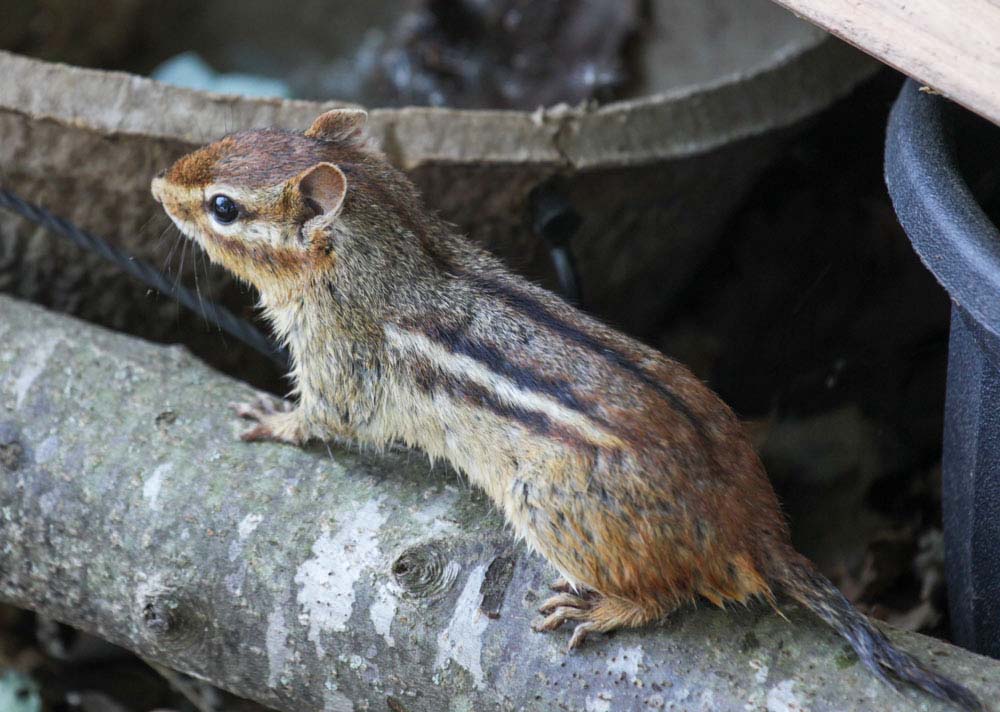


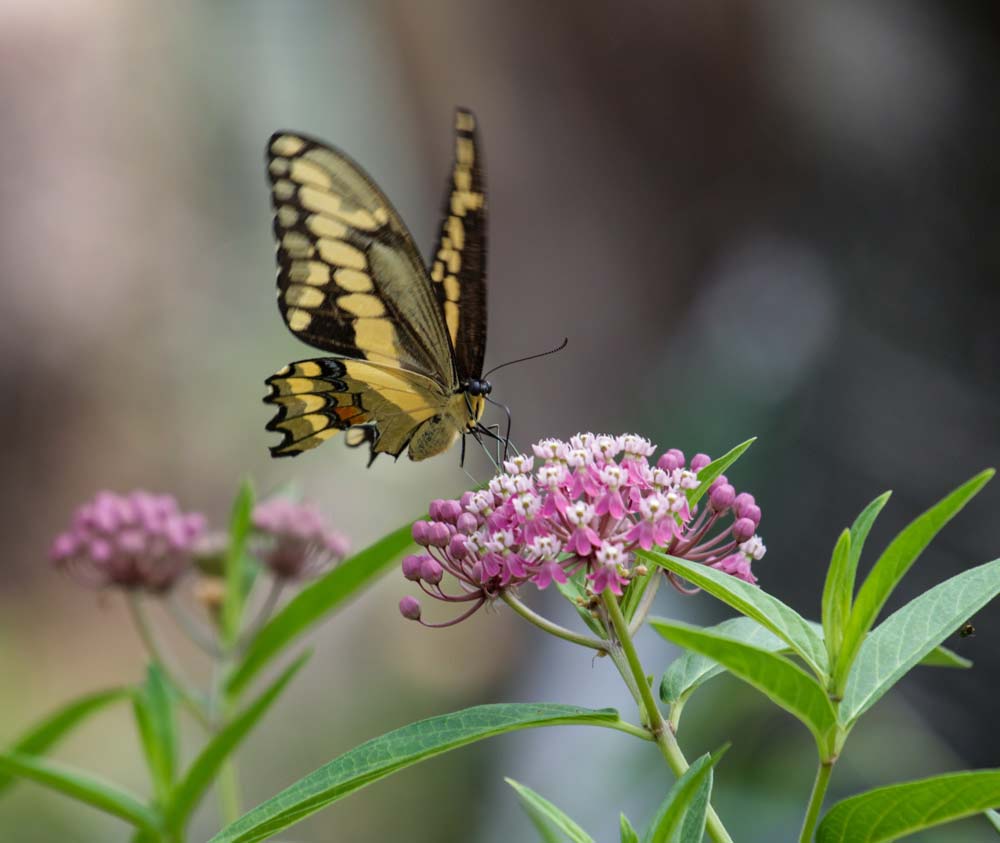
There were dozens of meetings between our lawyers and the town and us and the town. The final agreement between their lawyer and our lawyer was, they'll pay our legal fees, and we don't have to change anything. There's no promise going forward that we're allowed to keep this, because council hasn't yet made the new naturalization law. But they said, “Until that happens, we're not going to come back.”
There's no admission of guilt on either side. However, we’ve been told that it's really positive that not only did the town pay $5,000 for our legal fees, but they did so publicly. Previous town cases against people with lawn violations have always resulted in closed results. So ours being resolved with the town paying our costs establishes that violating our rights has a price for municipalities.
Stewards of the future
Craig: We were the first I knew of in town that had Butterfly Society and David Suzuki Foundation signs on their lawn. But now more people in our town have those signs and have started growing naturalized gardens to protect and provide for the local wildlife. During this process, our town depaved a road downtown and put in a large naturalized garden. They're going to put a wooden pavilion there. It's going to have a skating rink and a centre for people with this urban garden of all native plants.
I want to see the municipal act of Ontario designed to reflect that lawns can be viable places to have native plantings. And to have urban forestry be not just an afterthought, but something that is valued.

Beth: For me, it was not necessarily about protecting the environment. It was letting Craig do his thing, because he lives here. What bothered me most was the bylaw visits. But once our battle became public, things became easier, because I found so much support.
I was overwhelmed with the kindness of the letters that people wrote. When I think back to a couple of letters from our neighbours that weren't kind, I’m like, Really? You'd say something like that about a person? But all the support really helped me to keep going, knowing that we were doing the right thing.
I had taken my kids to Montreal for the climate march, because that’s something they care about. But people started saying, “Beth, you are setting an example for your kids. Them being able to see you continue to move forward even when it’s hard and painful is going to have a major influence on their lives.” I’ve developed such amazing friendships with my neighbours. We’re there for each other now, and I may never have gotten to know them otherwise. There’s been incredible support.
Editor's note: A previous version of this story incorrectly identified the swamp milkweed in one photo above as joe-pye weed. Thanks to Kelsey for letting us know; we've edited the caption.





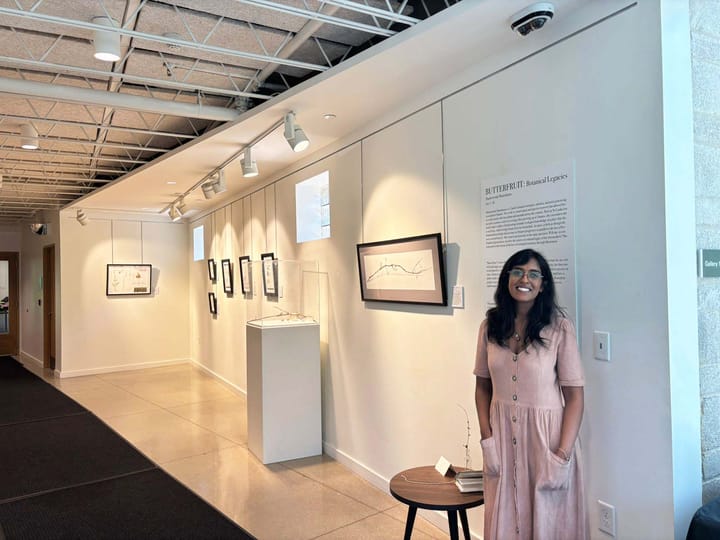
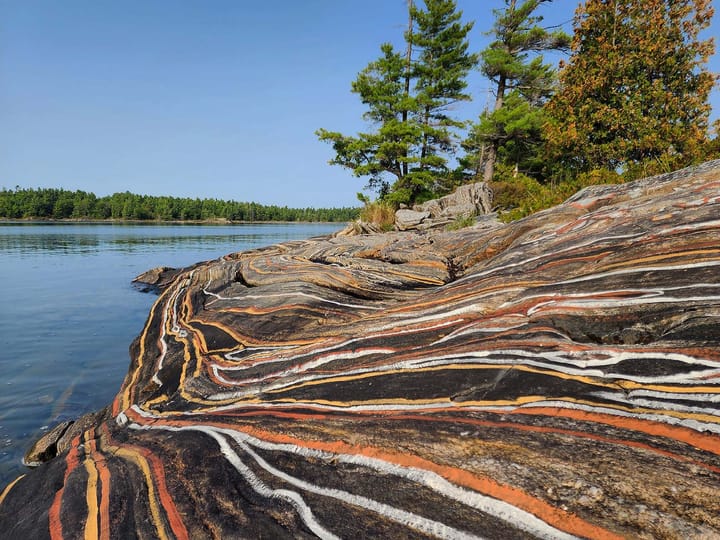



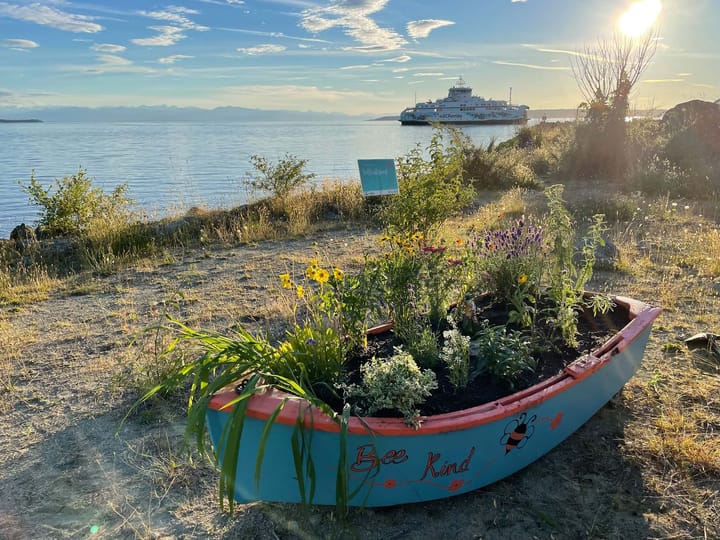
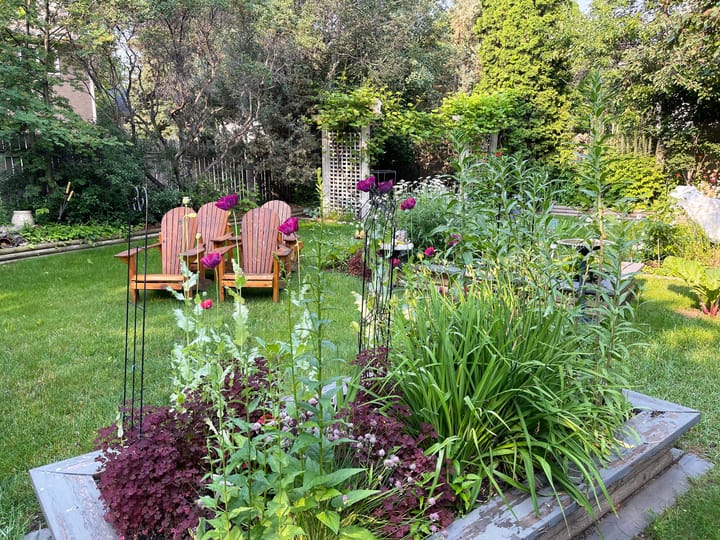
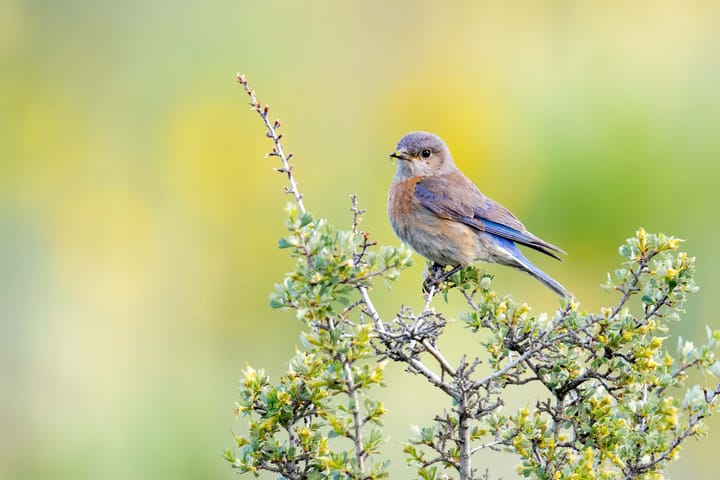
Comments ()